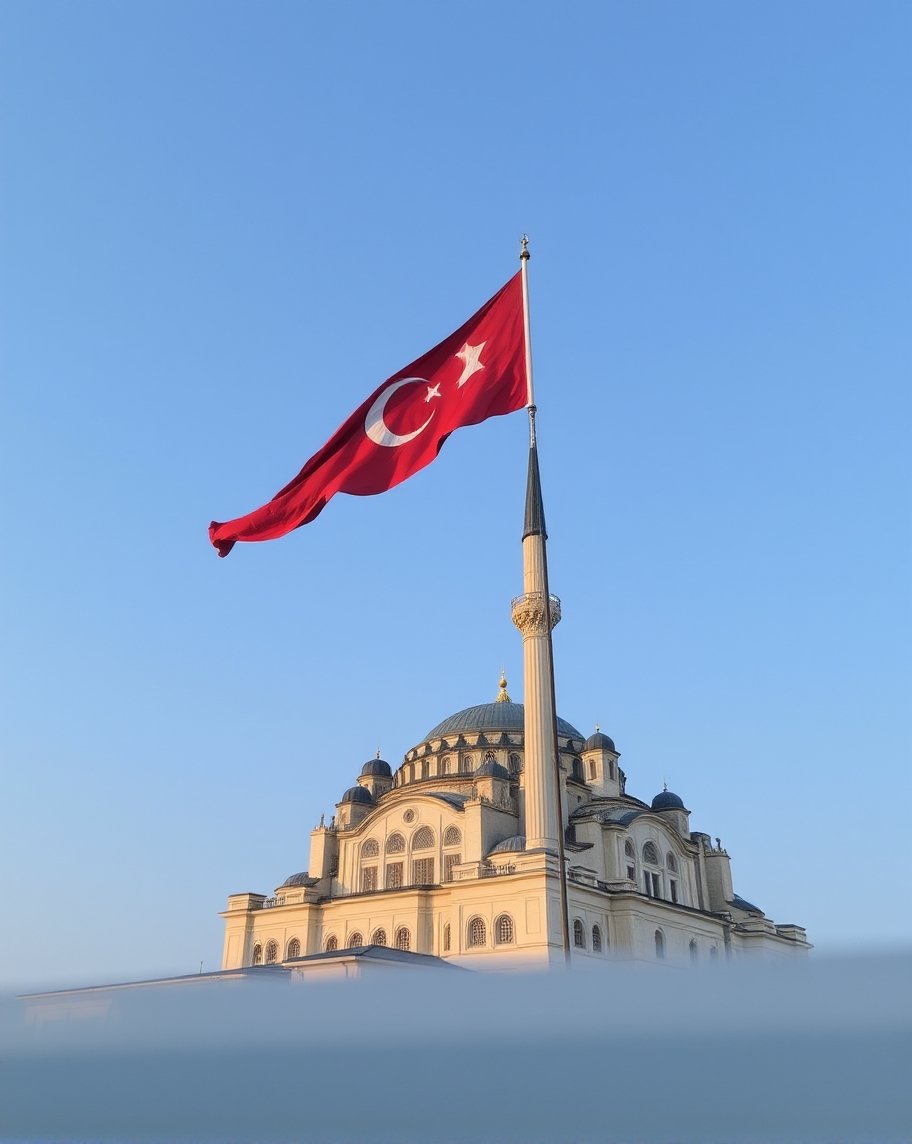The phrase “Utanmaz Türklere,” which translates to “shameless Turks,” evokes curiosity, controversy, and conversation. It embodies more than just words—it’s a reflection of Turkish identity, a term that has traveled through the annals of history and continues to hold meaning in modern Turkish society. But what exactly does this phrase represent? Is it an insult, a badge of honor, or something more nuanced?
In this article, we aim to dissect the complex history, societal impact, and evolving interpretations of “Utanmaz Türklere.” From its roots in Turkish history to its modern-day significance, we will explore the layers of meaning behind this concept and how it has shaped, and continues to shape, the dialogue surrounding Turkish identity.
Historical Roots of Utanmaz Türklere: A Glimpse into Turkish Resilience
The origins of the term “Utanmaz Türklere” are as complex as Turkish history itself, dating back to times of great turmoil, change, and resilience. Turkey, a land that bridges East and West, has seen its people face invasions, revolutions, and social upheavals. Amid these challenges, the idea of the “shameless” or “bold” Turk emerged—an individual who defies convention, rises against adversity, and stands unapologetically strong.
This defiance was not born overnight but through centuries of trials and tribulations. From the reign of the Seljuks to the vast Ottoman Empire, and later, the birth of the Republic of Turkey under Atatürk, “Utanmaz Türklere” came to symbolize a spirit of rebellion, pride, and fearlessness. Whether standing against colonial powers or modern-day societal pressures, Turks who embraced this term embodied a legacy of strength and independence.
This historical backdrop paints “Utanmaz Türklere” not as a simple label but as a concept woven into the fabric of Turkish identity, deeply rooted in its past.
Cultural Impact: How Utanmaz Türklere Shapes Turkish Society
In modern Turkish society, the concept of “Utanmaz Türklere” resonates on multiple levels, influencing everything from politics to popular culture. For some, it symbolizes the rebellious spirit of those who question authority and challenge the status quo. For others, it carries a more negative connotation, evoking shameful behavior or disregard for societal norms.
Despite these differing views, what remains clear is that “Utanmaz Türklere” continues to spark conversations around identity, values, and the cultural fabric of Turkey. It touches on the fundamental question of what it means to be Turkish in a rapidly globalizing world.
Through music, literature, and the arts, the spirit of Utanmaz Türklere is often celebrated. Turkish musicians and poets have long used their platforms to challenge societal norms, expressing defiance against traditional expectations. In cinema and theatre, we see stories of individuals who live boldly, refusing to conform to imposed standards.
As Turkey continues to evolve, so too does the meaning of “Utanmaz Türklere.” It has become a dynamic concept, symbolizing both the tension and harmony between tradition and modernity. Whether you view it as prideful or problematic, its influence on Turkish culture is undeniable.
Controversy and Debate: The Dual Nature of Utanmaz Türklere
The phrase “Utanmaz Türklere” stirs deep emotions. While some view it as a symbol of pride and authenticity, others see it as an accusation—suggesting shamelessness or inappropriate behavior. This duality makes it one of the most debated terms in Turkish culture.
Critics argue that the phrase reinforces negative stereotypes and damages the image of Turkish society, particularly in the eyes of the international community. They claim that the term perpetuates a notion of defiance that rejects accountability, making it difficult for progressive social norms to take root.
On the other hand, supporters of the term view it as a badge of honor. For them, “Utanmaz Türklere” represents a rejection of hypocrisy, a way to embrace one’s true identity without fear of judgment. This perspective celebrates those who live authentically, without bending to societal pressures or expectations.
In the realm of politics, the term has also found its way into heated debates about nationalism and liberalism. For some, it represents the conflict between preserving Turkish values and embracing globalized modernity. As political factions adopt the term to suit their own agendas, “Utanmaz Türklere” remains a flashpoint in discussions about national identity, culture, and values.
Modern Interpretations and Relevance in Today’s Turkey
As Turkey navigates the complexities of the 21st century, “Utanmaz Türklere” continues to evolve. Modern interpretations of the term reflect the diverse and sometimes contradictory values present in Turkish society today.
In the arts, bold interpretations of “Utanmaz Türklere” challenge traditional depictions of Turkish identity. Filmmakers and writers create works that question conventional morality and push the boundaries of what is considered acceptable. Social media has amplified these modern interpretations, allowing artists and influencers alike to reshape the narrative around “Utanmaz Türklere.”
Furthermore, the younger generation has begun to reclaim the term, using it to question not just societal norms but also the values imposed by older generations. Memes, videos, and viral trends often use the term to provoke thought, initiate conversation, and sometimes to mock societal expectations.
As Turkey’s youth become more engaged in shaping the future of their country, their reinterpretation of “Utanmaz Türklere” serves as a form of social commentary on the rapidly changing landscape of Turkish society. What once may have been a term rooted in defiance has now transformed into a vehicle for exploring new forms of Turkish identity in an ever-shifting global context.
The Role of Social Media: Amplifying and Shaping Public Perception
In today’s digital age, the influence of social media cannot be understated. Platforms like Twitter, Instagram, and TikTok have become battlegrounds where cultural discussions are fought. “Utanmaz Türklere” is a prime example of how a concept can be magnified through the power of hashtags, viral content, and global interconnectedness.
Hashtags such as #UtanmazTürklere have trended frequently, with thousands of users debating the term’s significance. These debates are often polarized, with some praising the authenticity it symbolizes, while others condemn its association with shamelessness. The virality of these conversations ensures that the phrase reaches far beyond Turkish borders, influencing perceptions of Turkish culture worldwide.
Memes and viral videos related to “Utanmaz Türklere” simplify complex discussions into easily shareable formats. While this helps spread awareness, it also risks distilling the phrase’s deeper meanings. The immediacy of social media content often sacrifices nuance in favor of instant reactions, making it essential to engage critically with these narratives.
Ultimately, social media plays a critical role in shaping how “Utanmaz Türklere” is perceived and understood today. The digital age has given new life to the term, transforming it from a historical concept into a modern cultural phenomenon.
Conclusion: The Enduring Relevance of Utanmaz Türklere in Contemporary Turkey
As we reflect on the enduring relevance of “Utanmaz Türklere,” it’s clear that this term is much more than a relic of the past. It’s a living, evolving concept that continues to resonate in discussions about Turkish identity, culture, and society.
Whether viewed as a symbol of defiance or a point of controversy, “Utanmaz Türklere” represents the complexity of what it means to be unapologetically Turkish. It challenges norms, sparks debates, and invites us to question the very nature of authenticity and pride.
As Turkey continues to evolve, the conversations surrounding “Utanmaz Türklere” will no doubt continue. In an ever-changing world, this phrase remains a testament to the power of words and the impact they have on shaping national identity and cultural discourse.
FAQs
Q: What does “Utanmaz Türklere” mean?
A: The phrase “Utanmaz Türklere” translates to “shameless Turks.” It reflects complex cultural, historical, and societal perceptions in Turkey, symbolizing defiance and authenticity for some, while carrying negative connotations for others.
Q: Where did the phrase originate?
A: “Utanmaz Türklere” has deep historical roots, emerging from the cultural and political upheavals that shaped Turkey over the centuries.
Q: Why is it significant in Turkish culture?
A: The phrase carries emotional and cultural weight, reflecting important discussions about identity, pride, and societal values within Turkey.
Q: How has its meaning changed over time?
A: Its meaning has evolved, influenced by modern societal shifts, historical contexts, and the growing impact of social media.
Q: Is it still relevant today?
A: Yes, “Utanmaz Türklere” remains a topic of discussion in Turkish society, particularly in conversations about cultural identity, authenticity, and the tensions between tradition and modernity.




